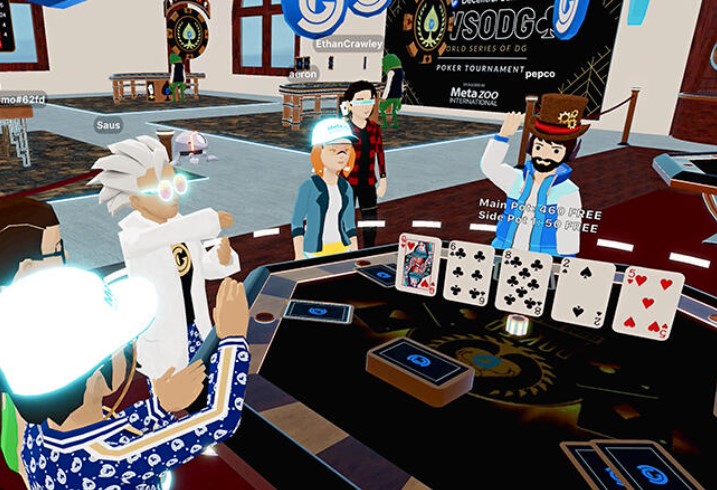
The Metaverse has become increasingly part of our daily vernacular, used to describe virtual reality and the interconnected nature of all things online – but what is the Metaverse, how will we become part of it, and what affect will it have on the way we do things?
With the rate of innovation and technological development, things that were once considered to be science fiction are slowly becoming science fact – we might not have instant healing for injuries now, but we already have lasers and robots performing surgery, and one of the things that has featured heavily in both dystopian futures and spacecraft is the idea of a virtual reality world.
What is the Metaverse?
Whether you are a fan of the Matrix series or love a good Holodeck programme on board the Enterprise, you will know what we mean by that. An immersive, full body experience that we can plug into, to live a fantasy, learn a new skill, or experience some time in history in the first person. The Metaverse, then, is loosely the same idea as this - an online, interconnected world that we can access virtually as an avatar and can take part in different activities as that avatar.
Some people might immediately assume Mark Zuckerburg is the father of the Metaverse, but that isn’t strictly true. While Zuckerburg has named his interconnected suite of social media apps Meta, that is more of a nod to the term rather than coining it for himself. In fact, the first time the term Metaverse came into conversation was following a novel by Neal Stephenson called Snow Crash which came out in 1992. In this book, set in a dystopian future, rich people escape to a virtual world known as the Metaverse.
Does it Exist Now?
In some ways, the elements of what will become the Metaverse already exist. The Internet of Things, which joins up your smart home tech to the internet, to your smartphone and to the Wi-Fi, for example. The Oculus Quest as well as the other, similar, gaming technologies that allow you to enter a 3D world as part of your gaming experience, for example. The borderless, cashless society being pushed forward through smart contracts, the blockchain, and cryptocurrency, for example. The Cloud providing oodles of storage without clogging up our living spaces, for example.
These are all facets of the innovation and technology that will provide the framework of the Metaverse, and while it doesn’t exist right now in the way that it does in popular media, there is real potential for the future.
What is the Future of the Metaverse?
Let’s take gaming, and particularly poker, as an example.
In the real world, you would have to leave your house and go to a casino to take part in a live poker game. Technology has advanced enough that you can play poker online through online operators, and even have live dealer games streamed to your device, if you want.
Enter the Metaverse, and things get a lot more immersive.
As your chosen avatar, you can physically walk into a casino and head for the poker table. You will be greeted by players and the croupier, as their chosen avatar, and invited to play. You’ll manage the cards in the same way you would in real life, you will be able to chat and interact with other players, and even look for things like their subtle tells and body language – if you practice, of course.
Throughout all this, the blockchain running the Metaverse casino is ensuring that every transaction is backed by algorithms and is fair, with Random Number Generation and smart contracts ensuring that winners get paid immediately and automatically. Thanks to borderless and decentralised payment options like Bitcoin, there is no need to share tons of personal data with the casino, as everything takes place securely and transparently on the blockchain.
Meanwhile, as your avatar, you are playing an immersive and interactive game of poker, socialising with others, and potentially winning the jackpot, too.
Now, Virtual Reality (VR) headsets and games are the closest we can get to this. We can strap on a headset and grip the controller to stroll into the lobby of a casino – and let’s face it, for now at least, VR has been designed with gamers in mind. The full immersive experience offered in games built for VR are built to offer the best 3D VR excitement, even if it is still in its infancy.
In the future, then, instead of logging into a virtual casino and playing a few hands of poker against the computer, we might be logging into a complete virtual world, walking into the lobby of a famous casino, and rubbing shoulders with real people represented by their avatars, while we flirt and bluff our way to the big score. It might not be next year, but the smart players know it is coming.